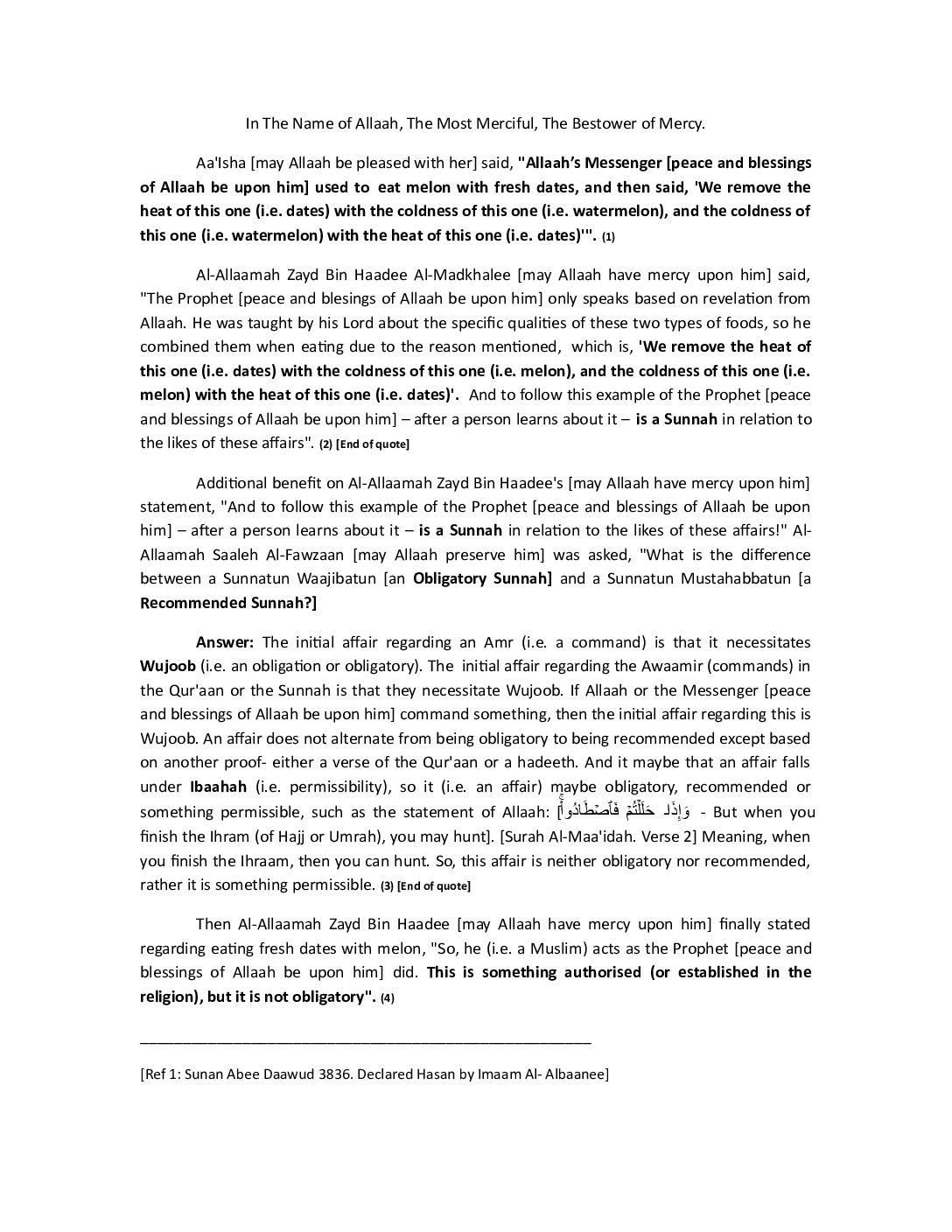Shaikh Fawzaan: The Methodology of Ahlus Sunnah In Their Combat Against The Khawaarij
In The Name of Allaah, The Most Merciful The Bestower of Mercy
Imaam Barbahaaree (rahimahullaah) stated in Sharh- As Sunnah:
”It is permissible to fight the Khawaarij if they attack the wealth of the Muslims, or the Muslims and their families, but if they are dispersed, then the Muslim Ruler is not to seek after them, nor are their wounded to be killed, nor is booty taken from them, nor may those taken captive be killed, nor are those who flee to be pursued.”
Sheikh Saaleh Al-Fawzaan commented on the above statement of Imaam Barbahaaree (rahimahullaah) saying:
We know that the khawaarij are those who hold that they can renounce obedience (to the ruler). They hold that the ruler is not given the oath of allegiance or that it is not binding upon the people to maintain their oath of allegiance to him when he becomes sinful, and they (also) declare the Muslims to be disbelievers for committing major sins. So if they adopt this school of thought and there arises neither uproar nor killing, then they are left alone, advised and given clarification in hope that they may repent. If they cause uproar and manifest their strength, it then becomes obligatory upon the Muslims to fight them to avert their evil.
They are not fought on the basis that they are disbelievers; rather they are fought on the basis that they are Muslims who commit outrage and transgression against other Muslims. That is why when Ameerul Mumineen Ali (radiyallaahu-anhu) was asked about the khawaarij, ”Are they disbelievers?” He said: ”No, they flee from disbelief, but they are a people who have rebelled against us.” Therefore, they (khawaarij) are not fought on the basis that they are disbelievers and that is why their women and children are not taken as captives, nor is their wealth taken, nor are their wounded killed; because they are only fought to avert their evil and not because of disbelief.
And regarding the saying of Imaam Barbahaaree (rahimahullaah):
‘It is permissible to fight the Khawaarij if they attack the wealth of the Muslims, or the Muslims and their families;’ because the Prophet (sallal-laahu-alayhi-wasallam) commanded that they are to be fought, and because Ali (radiyallaahu-anhu) fought them when they attacked and killed Abdullaah Ibn Khabbaab al Arrat and ripped open the stomach of his pregnant wife. So Ameerul Mumineen Ali (radiyallaahu-anhu) decided to fight them as they brought about a good reason to be fought against.
And regarding the saying of Imaam Barbahaaree (rahimahullaah): ‘But if they are dispersed, then the Muslim leader is not to seek after them.” If they refrain from fighting, the ruler is neither to chase them nor carry out a military expedition against them, as long as they do not commit acts of transgression. And no doubt they are misguided and are to be advised in hope that they may return (repentant) and are not fought.
And regarding the saying of Imaam Barbahaaree (rahimahullaah): ‘Nor are their wounded to be killed’; because the evil of the injured person is curtailed. And regarding the saying of Imaam Barbahaaree (rahimahullaah): ‘Nor is booty to be taken from them’, meaning: their wealth is not to be taken as war booty; because it is the wealth of the Muslims.
And regarding the saying of Imaam Barbahaaree (rahimahullaah): ‘Nor may those taken captive be killed’ because they are Muslims, and by being injured and taken as captive their evil is curtailed. And regarding the saying of Imaam Barbahaaree (rahimahullaah): ‘Nor are those who flee to be pursued’. If they flee, the leader is to leave them alone and not go after them as their evil is curtailed.
[Source: It-haaful Qaaree Bitta’liqaat Alaa Sharhus Sunnah Lil Imaam Barbahaaree) by Sheikh Saaleh al-Fawzaan (hafidha-hullaah) (page: 240-242, Vol: 1)]





